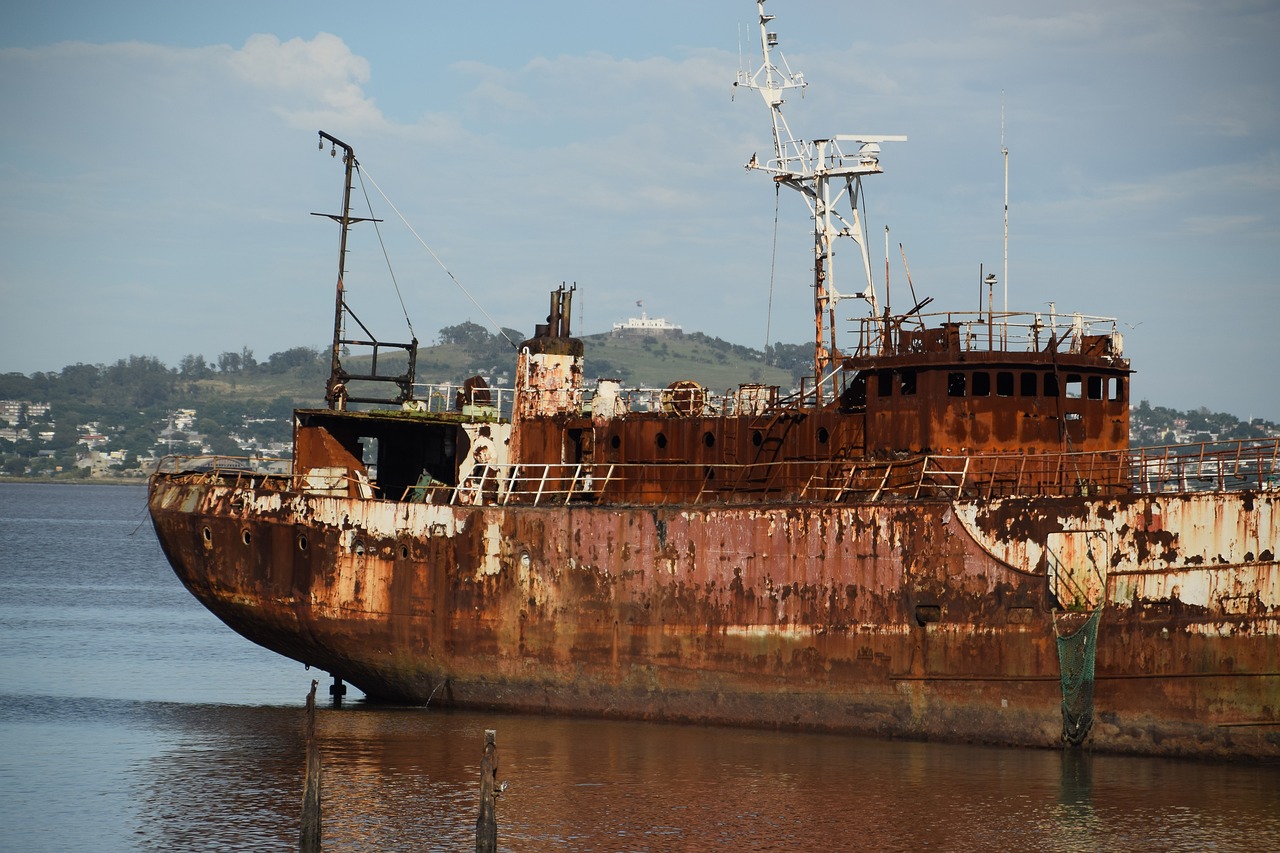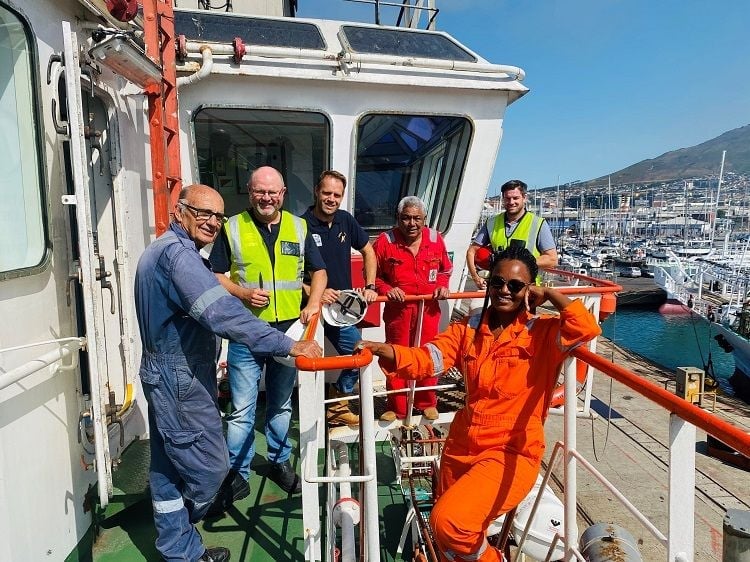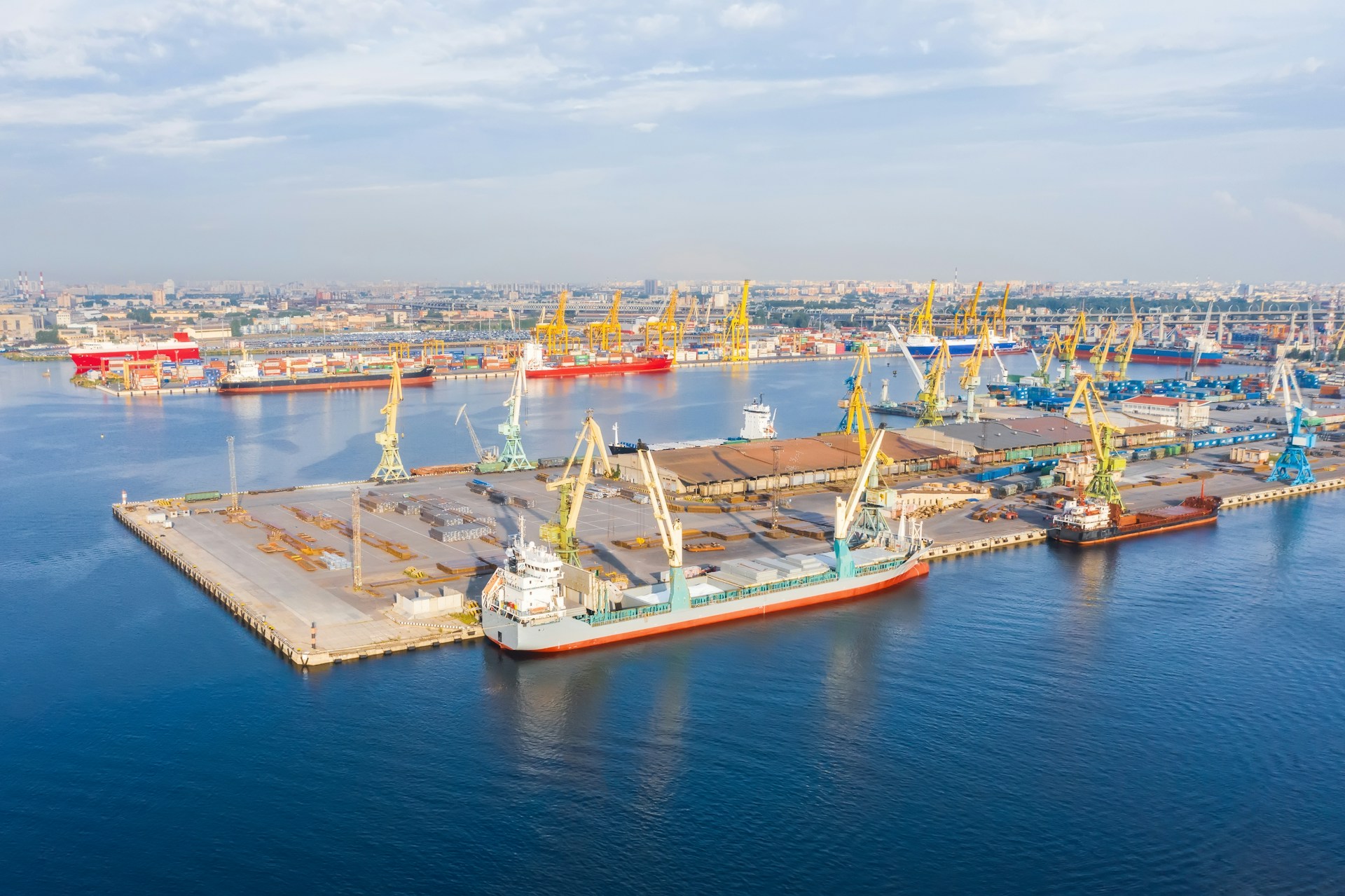Marine salvage is the process of retrieving, rescuing, and repairing a ship – saving also its crew, cargo, and other properties – after a shipwreck or any other maritime accidents.
These incidents may include a vessel running aground, sinking at a dock, or having problems while on voyage. Ships abandoned at sea are also part of the scope of marine salvage.
Marine salvaging is primarily done to prevent any contaminants, mainly oil, from spilling or leaking into the sea – to protect the marine wildlife and its ecosystem.
Another important objective of salvaging is to remove any damaged or stranded vessel that could be blocking any significant channel or passage of navigation.
The process must be accomplished quickly to lessen marine pollution and to keep continuous voyages.
How are vessels salvaged?
Marine salvage is typically carried out by specialized companies known as salvage firms or salvors, which have the expertise, equipment, and vessels needed for such operations. Major players in the industry include companies like Smit Salvage, Titan Salvage, and Resolve Marine Group.
A salvor, simply defined as a person involved in salvage of a ship, may tow, re-float, or effect repairs to a vessel.
A salvor’s duties may include assisting the ship’s clean up or prevention of oil spill, removing it from the beach, raising the vessel, or locating it and returning her to the shore.
In regular cases, a ship provides assistance to another ship that is unable to voyage efficiently due to engine issues, damages on the hull or gears, or lack of crew – but has not yet sunk.
The key elements of marine salvage
Wreck removal: This involves the recovery of a sunken or grounded vessel that poses a hazard to navigation or the environment. Wreck removal can be complex, often requiring heavy machinery, specialized divers, and salvage tugs.
Cargo recovery: In many salvage operations, the focus is on recovering valuable cargo from a damaged or sunken vessel. This could include containers, oil, or other valuable goods.
Emergency response: Marine salvage often involves urgent action to prevent environmental disasters. For example, if a ship carrying oil or hazardous materials is sinking, salvage teams may quickly respond to prevent spills and contain pollution.
Refloating: One common salvage operation is to refloat a vessel that has run aground. This can involve removing excess weight, using airbags or pontoons for buoyancy, and pulling the vessel off the obstruction with powerful tugboats.
Towage: If a vessel is unable to operate on its own due to damage, salvage tugs may tow it to a safe port for repairs.
Is marine salvage important?
Marine salvage plays a vital role in the maritime industry by:
- Protecting the environment: Rapid response can prevent or limit pollution, especially in cases involving oil or hazardous materials.
- Ensuring safety: Removing wrecks and debris helps maintain safe navigation routes, reducing the risk of accidents.
- Economic value: Salvage operations recover valuable assets, such as the ship itself, cargo, or equipment, minimizing financial loss.
What are the types of marine salvage?
- Harbor Salvage
Operation encompasses sunken or stranded ships in partially smooth waters – protected bodies of water deep enough for anchorage – or port facilities where natural conditions like big waves, strong currents, or sudden weather changes are not particularly considered factors of concern. There’s no reason to hasten this process unless a passage for navigation needs to be cleared out right away.
- Cargo Salvage
There are times when salvaging the cargo rather than the vessel itself is more important. Cargos onboard a ship may contain components that are hazardous to the marine environment. This is why sometimes it is of utmost priority to remove any toxic element from the waters. Expensive cargos are also salvaged as soon as possible to prevent irreparable damages from happening to the shipment.
- Equipment Salvage
Large machinery components – driving systems, turbines, and engines – are salvaged if they survived seawater intrusion, and remain intact, by disassembling, dissecting, or destructing the hull.
- Afloat Salvage
A vessel that is damaged but still floats on the water only requires afloat salvaging. This involves damage control and primary repairs like structural bracing, stabilizing by rebalancing ballast tanks and shifting cargo, and hull welding.
- Clearance Salvage
Catastrophic events like those caused by nature or man can cause heavy damage along harbors and waterways essential to passages or voyages. When this happens, a number of shipwrecks are cleared out coordinately to remove obstructions in navigation. Parts of these vessels or debris are also scavenged sometimes to hasten the process.
- Shipwreck Salvage
Its main objective is to get rid of the waters of any unsightly or hazardous material through the cheapest and most practical way possible. A usual practice is to cut the hull into small details, refloat these after, and scuttle the parts in deeper waters. Compared to the other salvaging types, this one is a low priority task.
- Offshore Salvage
Sunken or stranded ships in open waters require this operation. Unlike the other types mentioned above, open waters pose certain natural threats like unexpected weather changes, strong currents, and tidal waves that could hinder the progress of the operation. This is the reason why some procedures may take days, or even months, to complete.
- Contract Salvage
This type of salvage is performed under a pre-agreed contract where the salvors are paid a fixed fee regardless of the outcome.
- Lloyd’s Open Form (LOF)
A "no cure, no pay" agreement where the salvors are only paid if they successfully save the vessel or its cargo. The compensation is based on the value of the salvaged property.
- Pure Salvage
In this scenario, the salvors voluntarily save a ship or cargo without a pre-existing contract. Payment is awarded based on the value of the salvaged goods and the level of risk involved.
Compensation for marine salvaging
Even though all ships have an international duty to respond to calls of distress from any vessel in need and give assistance as soon as possible to save the lives onboard, it is not an imperative to try to save the ship.
As accepting the offer of salvage assistance is optional, a contract is automatically created for any accepted assistance to grant the successful salvor the right to a reward under the 1989 Convention.
There are various legal provisions about the compensation for marine salvaging -- including all of them here might dry your eyes out reading everything – but conventions and modifications were done to make sure that salvors receive the reward they deserve for their rendered service.
Their willingness to brave the possible dangers they may encounter at sea performing their tasks, preventing any damage from happening in the waters, and consequently saving the marine ecosystem makes them certainly entitled to be rewarded.
What are some well known marine salvage operations?
The Costa Concordia (2012): One of the largest and most complex salvage operations in history, this involved refloating and removing the wrecked cruise ship off the coast of Italy.
The Ever Given (2021): This salvage operation involved refloating a massive container ship that had run aground and blocked the Suez Canal, causing significant disruptions to global trade.
What skills are needed to work in marine salvaging?
The skills needed to be a salvor are considerably common among seafarers, so no need to doubt yourself and wonder about any special skill that might be required.Here are the top seven:
- Seamanship
- Boat handling
- Boat patching
- Mechanical skills
- Swimming
- Diving
- Rigging (whenever required)
So if you think you have these and if you're interested to become a salvor, continue improving your practice and you'll surely succeed in your field!
How to join a marine salvage company?
Marine salvage is significant as a profession, considering its impact to the marine environment and to continual passages.
Its development is a must as some marine accidents that need salvaging require immediate attention.
It is important that there are salvors ready to take action.
Some seafarers take this profession as a result of the vast amount of compensation that they may acquire for rescuing or recovering a vessel, or its cargo at times.
To become a marine salvor, you'll need a strong background in maritime operations, diving, or engineering. Start by pursuing a degree or certification in marine engineering, naval architecture, or marine operations.
Experience at sea is invaluable, so working on ships, in offshore construction, or as a commercial diver can provide essential skills.
Specializing in fields like underwater welding, heavy-lift operations, or emergency response will give you an edge. Many salvors begin their careers as deck officers, marine engineers, or salvage divers before moving into salvage companies.
Networking and obtaining certifications like STCW (Standards of Training, Certification, and Watchkeeping) and advanced diving qualifications will also help you enter this challenging but rewarding field.
If you are thinking that this job fits you well, given the skills and the overview we've mentioned above, you can go ahead and pursue a license in marine salvage and discover more about this unique profession.
Read more: The Ultimate Guide to Finding Jobs at Sea
In case being a salvor doesn't really pique your interest but you're still searching for other seafarer jobs, we can definitely help you with that, too!
Here at Martide, we'll gladly assist you in landing your next seafarer post.
We’re always looking to recruit skilled crew members, like you, on behalf of our maritime industry clients. (Ready when you are!)
Sign up for free and create your profile or log in to your Martide account anytime to start your career with us.
Don’t forget that you can also start your journey and apply for any of our vacancies using our free mobile app.
You can also download the app from Google Play and from the Apple Store for iPhones and iPads.


Gavin Hirst
Gavin is a contributing writer to the Martide blog who covers topics ranging from life at sea to maritime crew management software. A native Brit who is now based in Auckland, NZ, Gavin is also an SEO expert and partner in a successful digital marketing agency that has offices in New Zealand and the United Kingdom.
New Zealand

is the only site for maritime jobs




